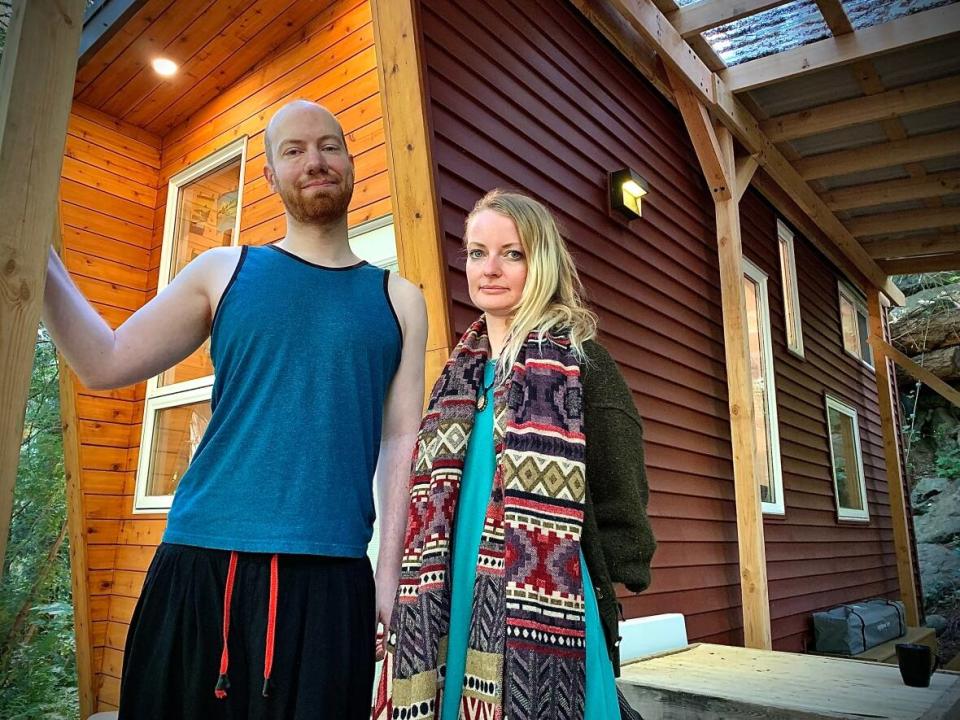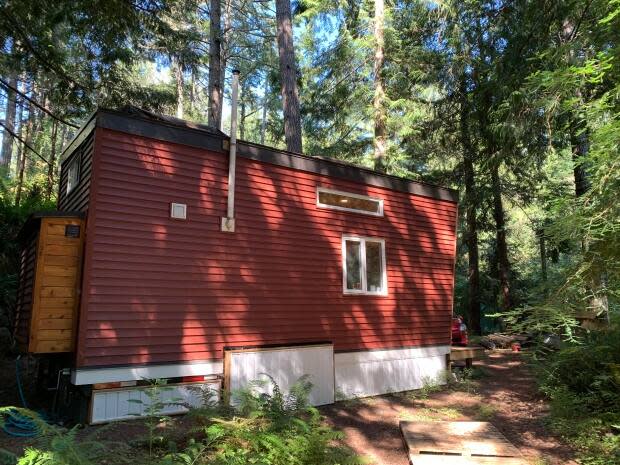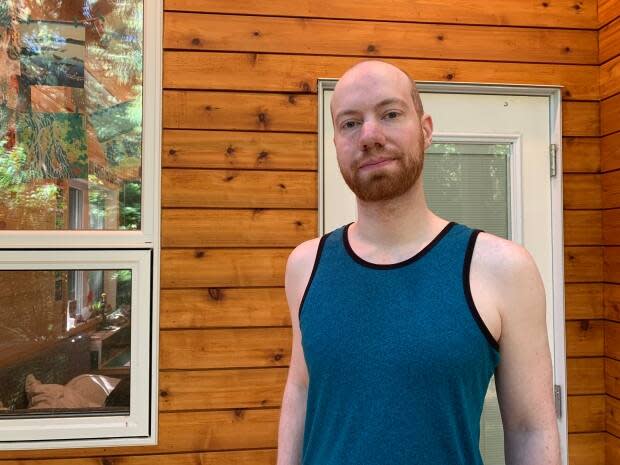Rural Vancouver Island community of tiny homes facing evictions calls for bylaw changes

For the past two years, Bryce Knudtson has had his small repurposed mobile home parked on a quiet, forest-covered plateau in rural Metchosin, B.C. — a four-hectare property where he and nearly a dozen other tenants living in small residences, an RV and a converted bus, have managed to avoid the region's housing crisis.
But an eviction date looms, and the tenants, who Knudtson says include a teacher, health-care worker and a tradesperson, could soon be forced from their homes at 4730 Eales Road.
In January, the Capital Regional District served their landlord an eviction notice, stating the extra homes violated a District of Metchosin zoning bylaw that restricts the property to one dwelling and one secondary suite.
The district has since granted two extensions to allow the tenants to find new places but will not be granting any more after Aug. 31. Knudtson says he and the other residents, who can't find an affordable space in the region to place their homes, are out of options.
"We're at the point now where there's really nowhere for us to go," he explained, adding he's frustrated the district has refused to take any emergency measures to help them stay there.
"We're hiding here like criminals, and I don't think we are. We're just people who found a [housing] solution that wasn't being provided to us," he said.
Knudtsons's landlord Saige Lancaster said she purchased the property four years ago with the intent of opening it up to tiny houses like Knudtson's, which are built with wood, insulation and siding like a full-size house under what seemed to be a legally grey area in the local bylaws.
But after multiple emails and phone calls to the CRD and Metchosin, she says she's received a bylaw notice stating if the tenants haven't left by their eviction date, she will accrue fines of $100 per day, per bylaw infraction.

Metchosin is 'fundamentally rural,' says mayor
Metchosin Mayor Jon Ranns says the district was incorporated in 1984 to provide a strictly rural alternative to the rapidly urbanizing region and the 20 or so properties that allow for more than one dwelling are those that were grandfathered in after incorporation.
"We are one of two fundamentally rural communities … and it just doesn't make any sense to compromise that," said Ranns when asked about the potential to rezone the property.
"Allowing any kind of density is like a cancer. It just comes in, and it'll take you over."
Ranns said that to rezone the property before the October municipal election would be too great a change and would significantly impact the character of the community.
It would also be costly given the energy, waste and building regulations the district would have to enforce, along with the demand for more urban infrastructure, which would cost taxpayers.
Lancaster said she trucks water in for her tenants, and they all use composting toilets, all of which has been working just fine.
She said she's asked Metchosin to enact an emergency bylaw similar to one passed last year by the Islands Trust, allowing unlawful rental units on Salt Spring Island to stay "until there are … appropriate housing options that are affordable" for the residents.
Ranns says this kind of measure would be something for the next council to consider after the election, which he is not running in after eight terms as mayor.
Municipalities have a duty to their residents: CRD director
In May 2018, the CRD and the provincial and federal governments announced up to $120 million to build about 2,000 rental units in the region, including 1,400 affordable units.
Saanich councillor and CRD director Jeremy Loveday said the program, which ends this year, "perhaps didn't meet the needs of some of the more rural and remote communities," adding the CRD is starting a new housing program in 2023, with a focus on the unique housing needs of rural areas, so that residents don't have to leave their community.

Loveday said he respects the rural regions and the need to protect farmland, but "I would also hope that, if people are losing their homes, there's a concerted effort by the local government to … make sure that people are not left without a place to go."
Lancaster says she questions the definition of rural if the District of Metchosin is concerned about urbanization.
"We haven't [cut down] any trees. We're having a very small impact on the environment here," she said. "Instead of building condos, this [tiny home community] could be the solution to the housing crisis while keeping Metchosin a farm community."
Knudtson said he'd like to see an emergency bylaw enacted to allow for a temporary housing exception while a permanent solution is put in place.
He said if he can't stay on the property, he'll have to quit his job, sell his tiny home and leave southern Vancouver Island.

